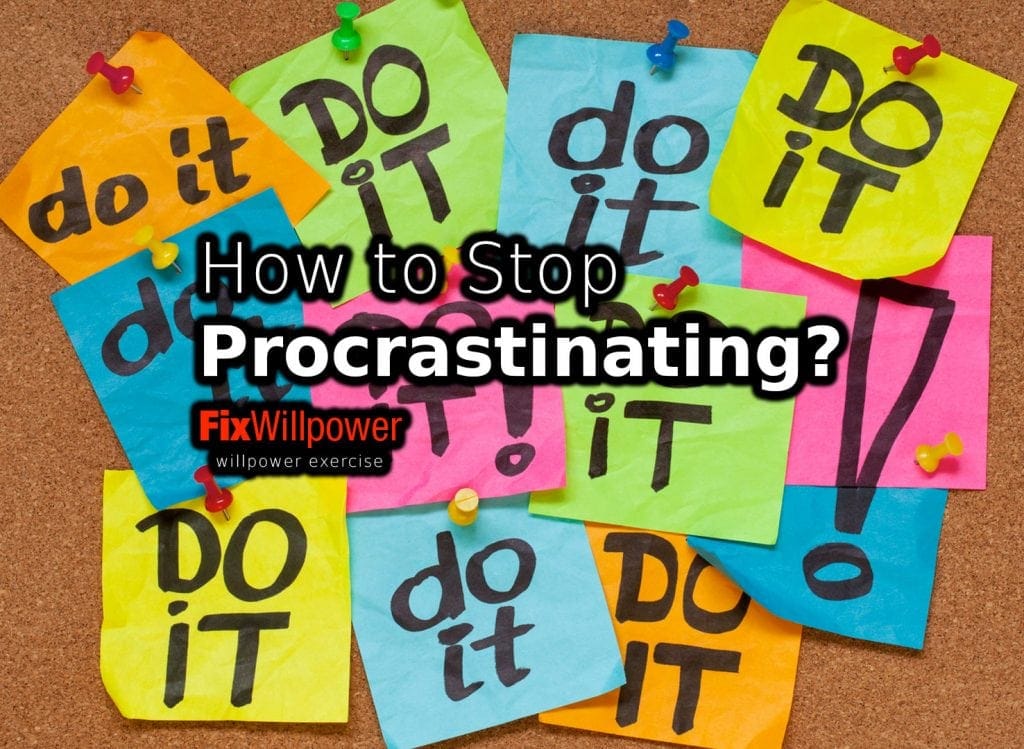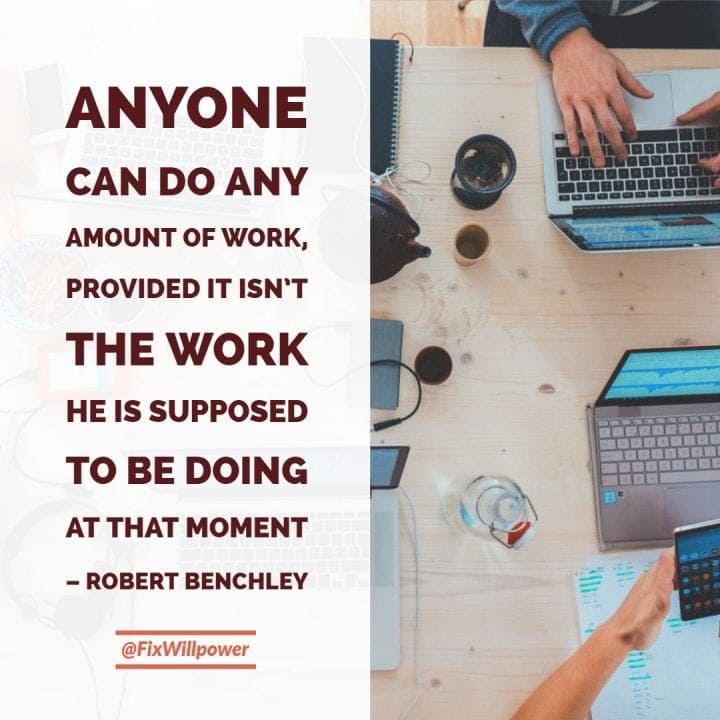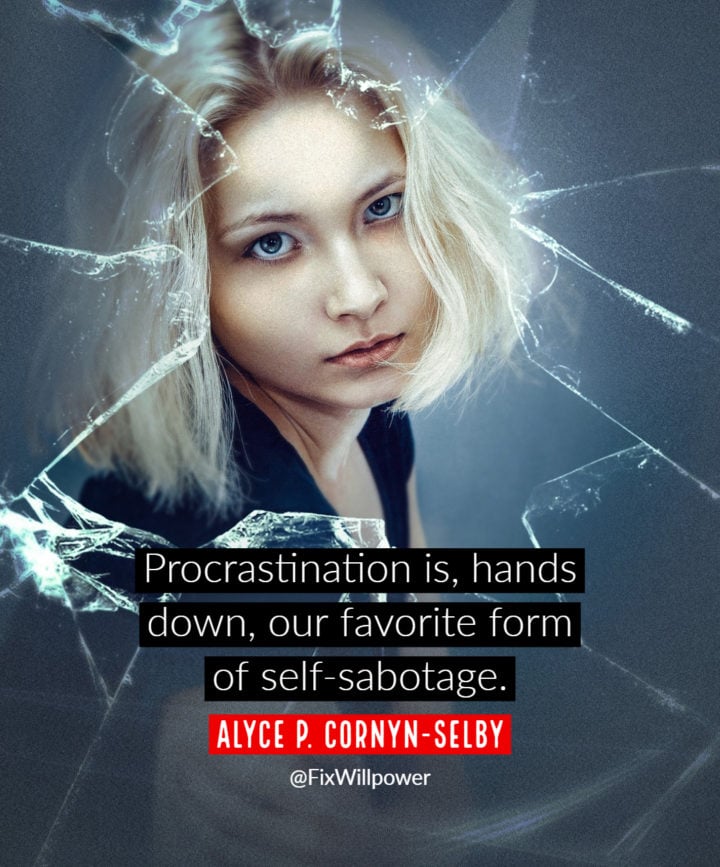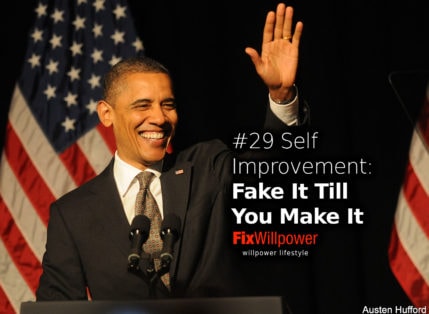Do you want to know how to stop procrastination?
Maybe later?
Some people, I have heard, sometimes procrastinate on their most important tasks.
Shocking! I know.
Most people do!

Beat your procrastination and you will be unstoppable.
Procrastination is in all of us and your ability to deal with it will put you on the top. You have all it takes, you just need to get rid of procrastination.
Next, I will help you understand your problem and find ways that help you beat procrastination. For example, the steps you have to take to overcome procrastination.
Procrastination TED talk
In this procrastination video you’ll see that everybody procrastinates. Tim Urban knows that procrastination makes little sense, but he’s never been able to shake his habit of waiting until the last minute to get things done. In this hilarious and insightful talk, Urban takes us on a journey through YouTube binges, Wikipedia rabbit holes, and bouts of staring out the window — and encourages us to think harder about what we’re really procrastinating on before we run out of time.
Why watch this video? Tim became one of the Internet’s most popular writers. With wry stick-figure illustrations and occasionally epic prose on everything from procrastination to artificial intelligence, Urban’s blog, Wait But Why, has garnered millions of unique page views, thousands of patrons and famous fans like Elon Musk.
Procrastination is the avoidance of doing a task you need to do. Often, procrastination takes place until the “last minute” before a deadline. Procrastination can take hold on any aspect of your life:
- Putting off cleaning the stove,
- repairing a leaky roof,
- seeing a doctor or dentist,
- submitting your job report or academic assignment or
- discussing a stressful issue with your partner.
Procrastination leads to feelings of guilt, inadequacy, depression, and self-doubt. Procrastination hinders productivity.
Here’s an example of procrastination of the highest level. One of my projects I could have finished in 6 months stretched over 3 years.

Why do I procrastinate?
Even now when I’m writing these lines, my brain wants me to quit and do something else, “Hey, let’s get a glass of water!” Maybe I should read a bit more on the topic. Anything that takes less effort than the activity you have to undertake. Procrastination is a way to avoid hard tasks.
It’s really easy to give in and start doing something else. Something else can be also important, there may be perfectly valid points in doing that activity.
But don’t give in!
If you do, you will train your brain in the wrong way. You will teach your brain that when it comes up with enough reasons then it will get off the demanding task.
Every time you give in will lead to more procrastination next time.
7 Steps How to Stop Procrastination
Next, I will give you the steps that help you overcome procrastination on your current projects and minimize the potential to procrastinate on future tasks.
Make no mistake, you will stray from the path, everyone does, but these techniques help you stop procrastinating when it happens.
1. Forgive yourself for procrastinating
Yes! You have been procrastinating.
Maybe a lot.
Don’t beat yourself up!
You must officially forgive yourself for the procrastination. Tell yourself that it’s OK and you will try to behave better in the future. Instead of telling it to yourself, maybe even write it down in a brief paragraph or two. Make it your procrastination journal.
It may help you detect patterns in your procrastination. Some details you should consider are:
- How big is the task?
- How long will it take?
- How far is the deadline?
- How anxious do you feel about it?
- What is the smallest task you can do to move forward?
- What will happen if you don’t complete the task on time?
- What will happen if you complete the task?
- Can someone else do the task?
- Can you combine the task with something else you are doing?
- Can you use the results in more ways than one and get better results?
- Can you do it by teaming up with someone?
Forgive yourself for past behavior and get on with it. Science says that forgiving yourself for past procrastination will make you less likely to procrastinate in the future.
If you are alone, you can say it out loud to yourself. “I have been procrastinating. I forgive myself. I will pull myself together and focus on getting better next time.”
We are often mean to ourselves all the time. You can read more about how to stop negative self-talk.

Mistakes are experiences. Without these experiences, there is no learning. ~ Lailah Gifty Akita
2. Setting things up to avoid procrastination
This task itself may feel like procrastination or busywork, because if you do only this task, then you are no closer to your goal.
If you are starting a project or rescuing something long overdue, set yourself up for success. Here are the steps:
- Make sure you have all the tools you need.
- Remove everything that may distract you from your task.
- If you need research, supplies, or materials, get everything ready before you start.
- Create a plan or set up an outline.
- Do you need coffee for working? Make sure you have some!
You are done with this task when everything is lined up. However, give yourself a time limit for this, or you may use it to endlessly delay getting started.
Now, do one thing. Maybe the easiest thing or do something for just 5 minutes. But get the momentum going.
3. Break your project down to manageable parts
It’s so cliché, but here goes:
How do you eat an elephant?
One bite at the time!
If you must write something, write one sentence. If you must prepare a presentation, create one slide. If you decide to work out, do one pushup. If you have to clean the house, clean out one item.
When breaking down the project, line the parts up from easiest to the hardest. If there’s no significant difference in task effort, then increase the time that you put in as you progress, and your willpower gets stronger.
Don’t do too much. The goal is to create a habit and a system. After the habit takes root in your brain, slowly increase the effort you put in.
Research shows that small action generates motivation. Motivation leads to more action. Start before you feel ready; then you’ll feel more motivated, and then you’ll take more action.
4. Redefine success
When you have put something off for a long time, then your deadlines have probably slipped. You have to redefine where the goals are. If you set the deadlines in stone, like exams or client presentations, then think about what you can achieve in the time left.
You can’t squeeze 100 hours of work into one day.
Don’t lie to yourself and anchor your goals in reality.
If you have missed the boat, then look for the next time.
Maybe something you planned to do is physically impossible for some reason?
Recalibrate your goal and start working.
5. Input-based goals
Sometimes your goals are outcome-based. For example, you have to deliver a project to the client on time.
Who set that date?
Your clients, teachers, and family members love deadlines. They can organize their lives around the dates you give them. Give them deadlines that you can deliver.
How do you arrive at a realistic deadline?
Take the time that you need to complete all the steps. Calculate how much time it would take you if you completed all the tasks as fast as you can and have no delays. Take that time and add 50% to it.
Now, divide the time you got with the time you can put in every day.
The result is a number of days to your deadline.
For example, let’s say you have to create a 4,000-word white paper. For this example, let’s say you have the following tasks:
- Research the material, ideally 4 hours
- Write 4,000 words, 8 hours
- Edit and spellcheck the material, 4 hours
- Find or create visual material, images, tables, graphs, 2 hours
- Format the document, 2 hours
Ideally, the task would take you 20 hours. Add 50%, and you get to 30 hours. Let’s say you can put in 2 hours every day and you don’t work on weekends. Your deadline is 15 working days or 3 weeks.
If you estimate your speed and daily hours correctly, then there’s a reasonable chance you finish your project before the deadline.
Your work is input based, and the input is the amount of work you are willing to put in every day.
6. What if you can’t make it?
It doesn’t matter how well you plan.
There will be times when you will miss your deadline.
Reset the deadlines.
Renegotiate!
Early!
Deadlines are not always as fixed as you think they are. When you see that you will miss the deadline, then let other people know as early as possible.
In the example above, I set a buffer 10 hours that translates to 5 working days. Don’t panic when you run into the buffer. The buffer is there for a reason.
After you have used one-third of the buffer, consider your options, what can you do to complete the project within the deadline. When you have used half of the buffer, let the other side know that you have run into some problems and give them realistic estimates when you will deliver.
Use this system, and you will avoid most of the problems with deadlines.
Procrastination and deadlines
There are studies that examined the impact of self-imposed deadlines on procrastination (Dan Ariely, Klaus Wertenbroch). They found answers to three questions:
- Q: Are people willing to self-impose meaningful (i.e., costly) deadlines to overcome procrastination?
A: Yes! People have self-control problems, they recognize them, and they try to control them by self-imposing costly deadlines. - Q: Are self-imposed deadlines effective in improving task performance?
A: Yes! These deadlines help people control procrastination. - Q: When self-imposing deadlines, do people set them optimally, for maximum performance enhancement?
A: No. Self-imposed deadlines are not as effective as externally imposed deadlines in improving task performance. But they still work.
The best deadlines are evenly spaced. If you have to deliver 3 projects in 6 weeks, then decide to deliver one project every 2 weeks. People get the worst result when they deliver all the work at once in the end.

I love deadlines. I love the whooshing noise they make as they go by. ~ Douglas Adams
7. Remove distractions
Work all the time you work.
Shut down and turn off everything that may distract you. Phone, instant messaging, email notifications, text messages, and put do not disturb sign on your door if you have one. I feel for you if you don’t have a door, in this case, put on headphones to make yourself look unavailable.
For example, I have permanently shut down almost all the notifications, but for some reason, my phone still makes a quiet pop sound when someone sends a new message.
Right now, as I write these words, the phone made the pop sound.
It’s distracting!
Who was it?
Let’s check and put it to rest. But checking may lead to aimless surfing, so maybe I shouldn’t check.
Distracted!
Shut down everything you can!
EDIT: I finally found the setting to turn of annoying pops.
7A. Write down distractions
But sometimes your brain will stray, and you start to think about something other than what you want to focus on. You may not always be able to switch back to the main task. Your subconscious is trying to hang on to the other thought.
There is a solution to calm your mind.
Whenever you work on something, have a pen and a piece of paper handy. When the distracting thought occurs, write it down on the paper. Come back to the distracting ideas after you complete the task at hand.
Writing down the ideas will help you calm and focus on the main task.
After you complete the work at hand, you can return to the notes you wrote down while distracted.
Coping responses of procrastinators
Now, look at the excuses we all sometimes make. How to recognize them and what to do about them.

Anyone can do any amount of work, provided it isn’t the work he is supposed to be doing at that moment – Robert Benchley
Avoiding the task
Avoiding the location or situation where the task takes place. For example, a graduate student avoiding driving into the university or finding things you need to do in the location where you can’t do the task you have to. Instead of writing an article, you go shopping for a new computer mouse.
Blaming the world for your procrastination
Delusional attributions to external factors, such as rationalizing that the procrastination happens because of external forces beyond your control. For example, “I’m not procrastinating, but this assignment is tough.” Then there are the other tasks that you have to complete to start the task you are procrastinating on. Lining up the pencils, stacking the papers, cleaning the room, cleaning your neighbor’s house, etc.
Denial and trivialization
Pretending that procrastinatory behavior is not actually procrastinating, but rather a task which is more important than the avoided one, or that the essential task that should be done is not of immediate importance. For example, you think you need to clean the inbox before you can start working on that project report.
Distraction
Engaging or immersing in other behaviors or actions to prevent awareness of the task. For example, intensive video game playing, web browsing, or social media surfing. They are very sensitive to instant gratification and become powerless. Sometimes, the distraction may hide in the form of lower priority work on the same task. When you have to write a report, then you may procrastinate by formatting the content instead of writing it. It seems like you are working on the task, but you really aren’t.

Procrastination is opportunity’s natural assassin. ~ Victor Kiam
Descending counter-factuality
Comparing a life situation with others who have it worse. For example, “Yes, I procrastinated and got a B− in the course, but I didn’t fail like one other student did.” You are responsible for your actions. If something bad happens, then the first look for the reasons within your thinking and actions. It doesn’t matter what others think or do. It’s your life, you are responsible.
Valorization
Pointing in satisfaction to what you achieved in the meantime while one should have been doing something else. Look, I cleaned the whole house! I didn’t have time for anything else.
Mocking others
Using humor to validate your procrastination. You use slapstick or slipshod methods to criticize others’ striving towards the goal as funny.
What else to do to avoid procrastination?
If you have an extreme case of procrastination then only single-task. Break your to-do list up into pieces that will take 20 to 60 minutes. Use a 20 to 30-minute time slot for the activities that come hardest to you.
Switch off everything and do your hardest task for that amount of time. There have been writers who build their entire successful careers on a 5×40-minute routine.
Forgive yourself about procrastination in the past. Take some time to tell yourself that it’s OK and you will try harder from now on.

Procrastination is, hands down, our favorite form of self-sabotage. – Alyce P. Cornyn-Selby
Now stop wasting time on the web
If you have an uncompleted task you have been procrastinating on, look at the fixes at the last section. Select the ones that apply to your situation and get to work. Take a word document or a piece of paper and write down all the points that will help you complete the task.
Here you can check out the procrastination quotes that inspire you to act.
______________________
Image credit: Vic

![Read more about the article Host a Party to bring Friends and Family Closer [VIDEO]](https://fixwillpower.com/wp-content/uploads/host-a-party-429x314.jpg)

![Read more about the article 6 Rules of Success [VIDEO] Arnold Schwarzenegger: Trust Yourself](https://fixwillpower.com/wp-content/uploads/trust-arnold-schwarzenegger-429x314.jpg)
This is why we tend to procrastinate https://youtu.be/eGT4qKdMYsA